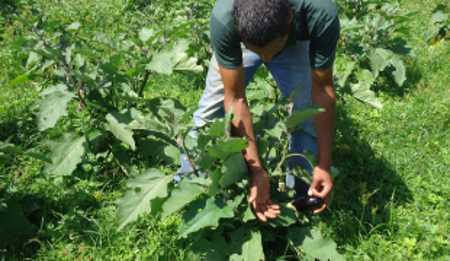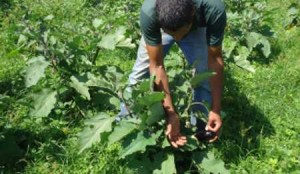
NUMBER OF ORGANIC PRODUCERS GROWS 51,7% IN A YEAR
THURSDAY, 12 MARCH 2015
The adhesion of Brazilian producers to the organic market grew, than, plus healthier foods, promotes the conservation and restoration of ecosystems. between January 2014 and January 2015, the number of farmers who opted for organic production went from 6.719 for 10.194, an increase of approx. 51,7%. The regions where there are more organic producers are the Northeast, with little more than 4 one thousand, followed by the south (2.865) and Southeast (2.333).
Production Units also had a significant increase. went from 10.064 in January 2014 for 13.323 in january of this year, so, an addition of 32%. It is important to point out that each organic producer can have more than one production unit. by region, the Northeast has the most production units, with 5.228, followed by the south (3.378) and Southeast (2.228). Not North, were accounted for 1.337 production units and in the Midwest, 592.
The total area of organic production in Brazil already reaches almost 750 thousand hectares, Southeast being the region with the largest productive area, getting at 333 thousand hectares. Then, are the northern regions (158 thousand hectares), North East (118,4 thousand hectares), Midwest (101,8 thousand hectares) It is on, with 37,6 thousand hectares.
Incentive to organic
O Ministry of Agriculture, Livestock and Supply (MAP), through the Agroecology Coordination of the Secretariat for Agricultural Development and Cooperatives (SDC), carries out annual campaigns, like Organic Week, in order to reinforce for the population, mainly the urban, that organic production systems are based on principles of agroecology.
According to the area coordinator, Rogério Dias, these systems seek to enable the production of food and other products in a way that is more harmonious with nature and healthier. The production system is still based on principles of social justice in all segments of the network..
Which is?
Organic production is based on production systems that adopt practices such as healthy and responsible use of the soil, from water, of air and biodiversity. Like this, reduces contamination and waste of these elements. The process applies knowledge of ecology in the management of the production unit, that is managed in an integrated way with the flora and fauna.
second days, this mode of production ensures the supply of healthy food, tastier and longer lasting. “Practices and substances that may endanger the health of those who produce and those who consume are not used., nor cause negative impacts on the environment”, said.
Another point he highlights is the importance that organic agriculture gives to social and work relationships., in which the entire production chain, from production to consumption, have to be considered with the same attention, always seeking to improve the quality of life for all.
Dias also explained that, for this set of factors, organic agriculture makes agricultural production more sustainable, in an increasing number of regions of the world. “Organic production expands the capacity of productive spaces to fulfill their ecosystem functions, so important for all the inhabitants of the Planet, which contributes to the confrontation of problems that are increasingly visible to all, such as global warming and water scarcity”, evaluated.
SOURCE: Ministry of Agriculture, Livestock and Supply
MAPA's Social Communication Office
Rossana Magalhães – JournalistTelephone: (61) 3218-2203
Text obtained from the website:
http://www.agrosoft.com/br/numero-de-produtores-organicos-cresce-517-em-um-ano/economia/


Sorry, the comment form is closed at this time.